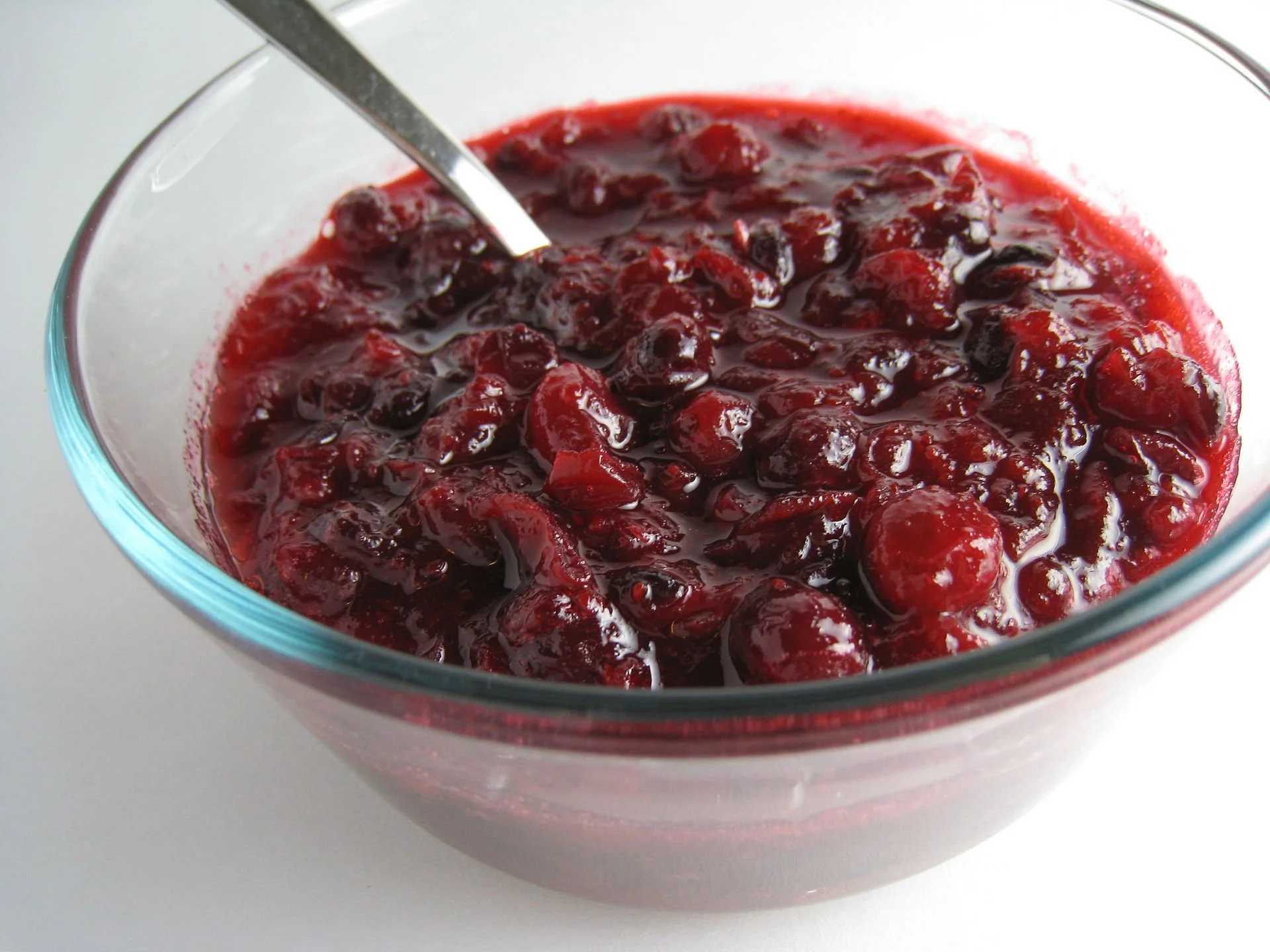Thanksgiving crisis
— From Veganbaking.net
Adapted from Robert Whitcomb’s “Digital Diary,’’ in GoLocal24.com
Like many of us, I closely associate past Thanksgivings with the places they took place.
When I was a young kid, it was mostly in our gray-shingled house on a hill near the ocean. The weather always seemed to be either drizzling and clammy or dry and brisk, with the sun slanting low on the horizon. These early-afternoon feasts, often preceded by watching the Macy’s parade in Manhattan on TV, were sometimes followed by walks, often to a rocky point, and dull headaches.
One memory from there is the Great Cranberry Scare of 1959. Arthur Flemming, President Eisenhower’s secretary of health, education and welfare, told the public on Nov. 9 that year that a little bit of the cranberry crop in the Pacific Northwest had tested positive for a herbicide called aminotriazole, which had caused abnormal growths, perhaps carcinogenic, in lab rats.
Although the major cranberry growers’ cooperative, Plymouth County, Mass.- based Ocean Spray, said accurately that you’d have to eat massive quantities of cranberry sauce (which was/is heavily sugared) to get sick from them, Flemming still advised people to avoid the fruit just as that treat’s biggest day, Thanksgiving, approached. Sales plunged, which hit the many growers in southeastern Massachusetts’s bogs hard.
In any event, the industry and the Feds worked out a deal to ensure that future lots of cranberries were clear of aminotriazole, and growers fairly quickly recovered from the economic blow of the Flemming announcement. It was the first big consumer-product crisis I remember.
My recollection is that at our Thanksgiving table we ignored the warning and helped ourselves to hearty helpings of cranberry sauce. That reminds me of the time soon after I graduated from college when my father, a smoker, cheerily offered a cigarette to a friend of mine with the words “Have some cancer!’’ He was a fatalist.
In later years, we’d be taken out by my paternal grandfather, by that point a widower, to the Daniel Webster Inn, in the Cape Cod town of Sandwich, which, happily, provided a meal lighter and brisker than what we’d get at home. He was a laconic Yankee, but he made an effort to show interest in what everybody had been up to recently.
And those of us of certain age of course won’t forget the sad Thanksgiving less than a week the assassination of President Kennedy, on Nov. 22, 1963. Whether you politically supported him or not, it cast a deep pall.
On Thanksgiving 1975, my wife and I dined virtually alone in a Philly hotel dining room near our shotgun apartment. It was quite pleasant.
In a couple of years, because of an unforgiving work schedule, I ate alone at home. King Oscar sardines are delicious out of the can!
Much later, for some years, we took an elderly, smart and rather cranky aunt and one or both of our daughters and another relative or two to the Coonamessett Inn, in Falmouth. That joint knew how to move things along! Since none of us were particularly enamored of Thanksgiving, or at least of big mid-day meals, that was fine. We’d be out of there in an hour and a half.
When we were living in Paris, we were invited to a big Thanksgiving dinner at my boss’s apartment. We invited along an American friend, a historian with a stentorian voice, who proceeded to sit at the head of the table and take over the room. Our hosts controlled their irritation.
There was the Thanksgiving at some friends’ house in Providence, where the pleasant post-prandial conversation and clean-up was brought to a sudden close by a phone call that announced the death of one of our hosts’ mother.
Thanksgiving is reported to be the second most popular holiday, after Christmas. Is that for real or do many people just say that because they want to sound people-friendly and anti-materialist? Meanwhile, one often wonders about the increasing percentage of people who live alone and how they spend highly familial holidays like Thanksgiving and Christmas. Of course, we speak more and more of creating non-family “families,” but when push comes to shove we usually have to fall back on relatives rather than friends. Maybe that will change.
As Robert Frost grimly put it in “The Death of the Hired Hand’’:
“Home is the place where, when you have to go there, they have to take you in.’’
I wonder how many people are moving to vegetarian or vegan Thanksgivings, both because of health and as a small way to address the suffering we inflict on the animals we eat. (I’ve seen stockyards and poultry-killing places.) We had some fake turkey last week; it was pretty good.
